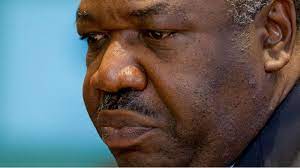The recourse on the international securities market through the issue on November 17, 2021 by Gabon of a bond loan of 800 million dollars, or 458 billion CFA francs, is variously appreciated by financial and economic analysts. With a maturity of 10 years for an interest rate of 7%, the funds raised through this loan are intended for the early redemption of more than 90% of the remaining outstanding amount of the issue of $ 736 million. , (420 billion CFA francs) of 2013 which expires in 2024.
For the Gabonese authorities, the mobilization of this fund with international investors in a context of health crisis linked to the Covid-19 pandemic demonstrates the attractiveness of the country whose credibility of the signature makes it possible to seduce the markets. “The three-year 2021-2023 agreement concluded with the International Monetary Fund (IMF) in support of the implementation of the Transformation Acceleration Plan (PAT), the strengthening of the good governance system, the upward review of Gabon’s sovereign rating (B- against CCC) by the rating agency Fitch Ratings and the country’s re-adherence to the Extractive Industries Transparency Initiative (EITI) are among the arguments that have played in favor of the subscription of donors ”, welcomed the Ministry of the Economy and Recovery.
“The Alpha and the Omega”
This satisfaction of the government is far from being shared by all observers, like the economic analyst Mays Mouissi who deplores the government’s approach to “make massive indebtedness the Alpha and Omega of its policy. economic “. An option for the least suicidal, notes the analyst, for a country whose trade deficit has continued to grow to stand at 5.12 billion dollars, or about 2,785 billion FCFA in 2020, which suggests that the growing indebtedness constitutes in reality a “vicious circle” which grips the development of the country.
At this stage, “it should be noted that the success of which the government of the Republic is claiming consists in replacing a debt on which an interest rate of 6.375% weighs with a new, more expensive debt, including the interest rate. is 7%, ie 62.5 basis points more than the previous loan payable by the taxpayer, ”he explains.
Rebelote
The supporters of this thesis emphasize that the Eurobond of 2013 due 2024 for which Gabon has once again “become heavily indebted” also had the objective of repaying the Eurobond of 2007 due 2017. They assert that in 2013, the authorities had succeeded in substituting a debt at 8.2% interest rate by a debt at 6.375%, ie 182.5 basis points less payable by the Gabonese taxpayer ”. Taking this aspect into account, the success of the 2021 Eurobond is put into perspective since it “increases the outstanding debt, extends maturity and increases the financial burden which absorbs an ever-growing part of the national budget”.
In other words, Gabon is getting into debt to pay its debts and not to boost development, the emergence of which according to the authorities should take place by 2025. Faced with this heavy debt, these analysts maintain that we cannot relaunch the economy. economy when in its 2022 finance bill, the government devotes 1169 billion FCFA to the debt, which represents about 40% of the national budget against only 326 billion to public investment, or 11% of the budget, the rest 49% of the budget being devoted to operations.
Gabon, whose growth rate in 2019 was 3.9%, entered a recession with a growth in real gross domestic product (GDP) of -1.3% 2020 due to the pandemic now expects average growth of 2.9% between 2021-2023 thanks to post-Covid economic stimulus measures.



